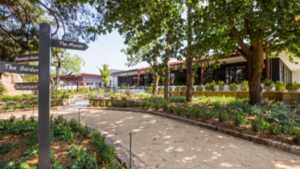Building a healthy business relationship either with clients or associates will always require time, dedication and challenges before you can establish a permanent road to success. Successful business leaders and long-standing organizations have created movements among customers and employees that make them stay in good or in bad times.
In the business world, there are only a few accomplished leaders that promote loyalty, not just a relationship that ends with a single transaction. Consider large-scale enterprises like Harley Davidson, Microsoft and Southwest Airlines or motivational leaders like Bill Gates and Martin Luther King Jr. These organizations motivated their employees, clients and long-time followers to stick with them no matter what the challenges were.
That all started with consistent movements which enabled these winning leaders, products, and companies to build lasting relationships with people. And the secret ingredient to their lifelong achievements is that they all start with WHY.
Simon Sinek, principal author of the best-selling book Start With Why, he carefully explains the “Golden Circle” framework which includes WHY, HOW and WHAT. This unique approach to leadership focuses more on giving importance to personal relationships with the people behind the success of any business rather than just hitting the target sales. “People don’t buy WHAT you do; they buy WHY you do it,” as Simon mentions this quotation several times in his award-winning book.
Unfortunately, many global business leaders and top-ranking companies center on the principles of “WHAT,” which often describe their market competitors, business trends, industry practices and products. What often ignored is the primary reasons for their existence — purpose, vision, belief, and cause. Since the WHAT is easier to emphasize, business leaders and corporations tend to forget that people seek their products and services because of the purpose of creating them. As Simon reminds his readers, you won’t be able to figure out “HOW” until you clearly understand the “WHY.”
Defining the WHY should be part of your initial thoughts when making your own business goals. Simon explains the importance of initiating team building and establishing customer loyalty using the WHY as a leadership concept. He is leading a global movement to inspire co-business experts, company employees, and start-up business owners to do things that inspire them the most. The visionary leader with a “rare intellect” teaches world organizations and leaders how to motivate people to come for work and go home satisfied with their productivity.
The Simon Sinek’s leadership Advices
#1 Building a team
Simon reiterates the importance of asking somebody to help out because you can’t do it alone. You don’t need to know everything and pretending to be an “all-knowing” individual will certainly yield bad results. Forming your own business team gives you the opportunity to create diversions of talents, strengths, and concepts which enable you to expand further. Individual capacity may seem fine, but working together with qualified people is far better than you could imagine.
#2 Admitting your shortcomings
Having mistakes isn’t about questioning your individual leadership capacity, but an opportunity to grow. Mistakes give you the chance to evaluate your weaknesses, which allow you to make necessary corrections and improvements. Indeed, it’s fulfilling to see how many people, including colleagues and even former employers, will offer a helping hand to you.
#3 Showing empathy before criticizing
The successful leaders are those people who inspire their subordinates to work at their best. Oftentimes, these leaders care most about the overall welfare of their people. When employees commit mistakes, it’s better to find out what happened before you make criticisms. Asking people how they are doing will make them feel important which will eventually lead to a better working atmosphere.
#4 Motivating people to work
Business achievers and acknowledged organizations won’t become successful without the dedication exerted by the people behind them. They should provide these hardworking individuals a compelling reason to come to work, not just a stressful workplace where people are no longer enjoying what they’re doing. The sad truth is, the vast majority of the workforce across the world today wouldn’t say “We love our jobs.” If business owners can provide people with a valid reason to come to work, they will show the inner passion and perform at their best, not because they need to, but because they want to transform a shared vision into a reality.
#5 Connecting with your prospects on a personal level
Simon affirms that if you intend to develop loyalty among clients, you need to build a friendship beyond business. Developing on a personal level with clients is what makes loyalty stay longer. Loyalty isn’t mean a repeated business transaction, but rather a constant emotional feeling that connects someone to a brand. Repeat business happens when someone continues to make transactions with you for some reasons of conveniences like ease of doing business, price or location.
Unfortunately, you should expect your customers to shift to another business if they discover a better deal than what you can offer. But in loyalty, the customer develops an emotional being towards your business where he or she continues to choose your services over others. That’s because the customer is willing to travel further or pay more regardless of the amount of favor he or she can get from other businesses. Now, it you’re able to extend care to your employees, they will likely extend that care to others, including colleagues and clients.
Oliver Lee’s Airbnb Experience
HostMyBnb is an example of Simon Sinek’s concept application where this start-up lodging business combines traditional and short-term property rental management. Founded in 2015, Oliver Lee created the online lodging platform, offering homeowners an alternative income-generating scheme aside from traditional term rentals. HostMyBnb is assisting homeowners to rent out their apartments and available rooms to active backpackers, tourist, and local vacationers while they are away. According to Lee, long-term leases of two to three months normally occur during winter season while short-term leases are popular during Christmas and school breaks.
If you wish to earn the loyalty of your clients and employees, business goals should start with WHY. Champion business leaders always pursue the hearts of the people first, reminding them why the organization was established in the first place.
About the Author
Oliver currently advises a few startups including Generation Entrepreneurs a non profit organisation that is Australia’s largest entrepreneurship program for highschool kids.









